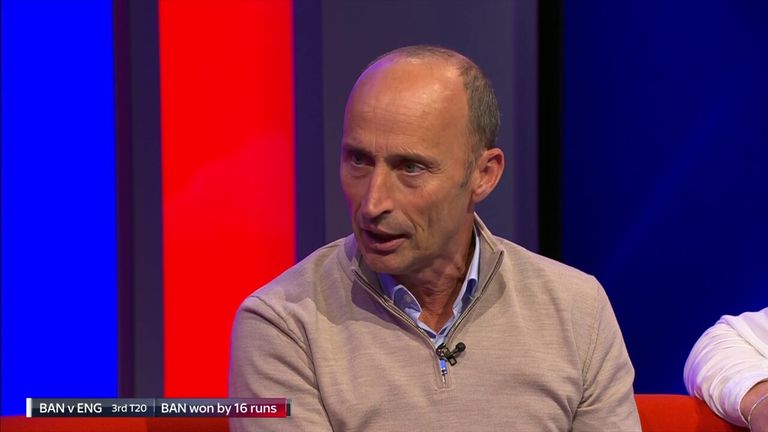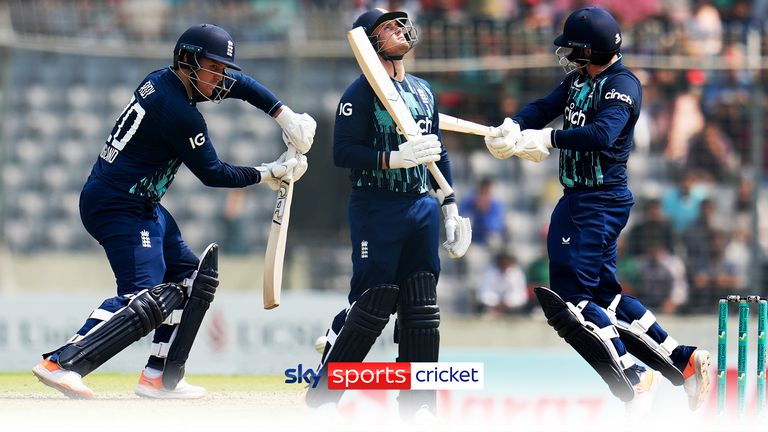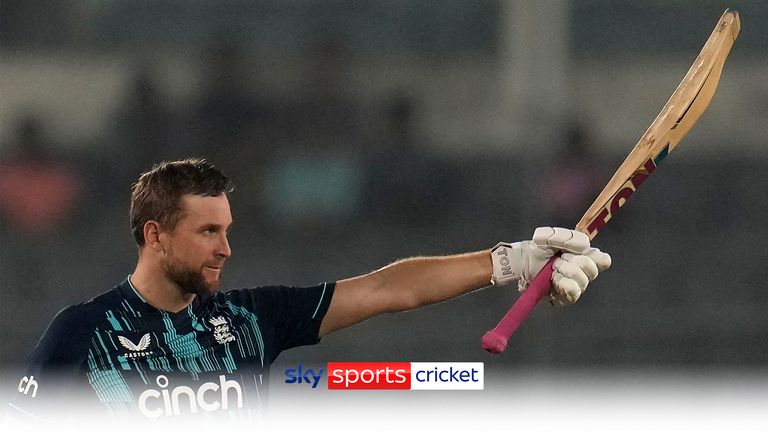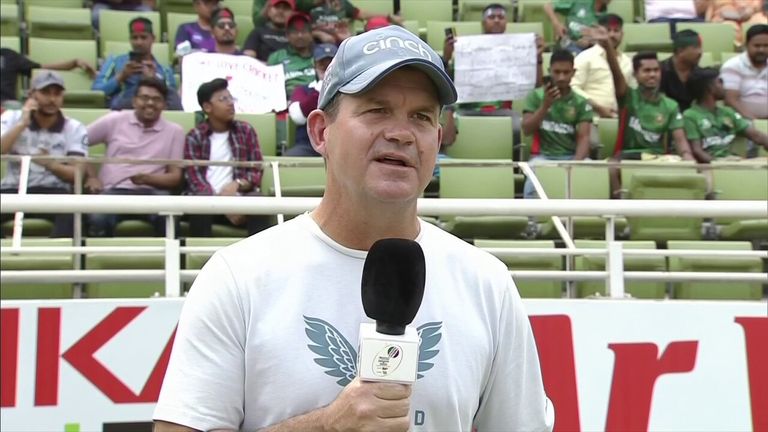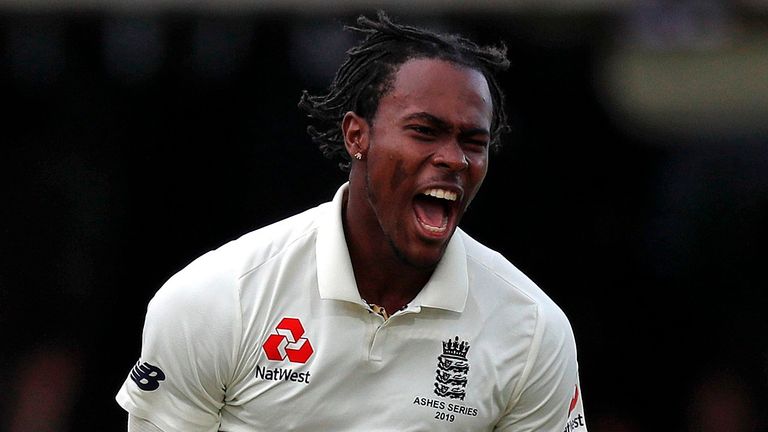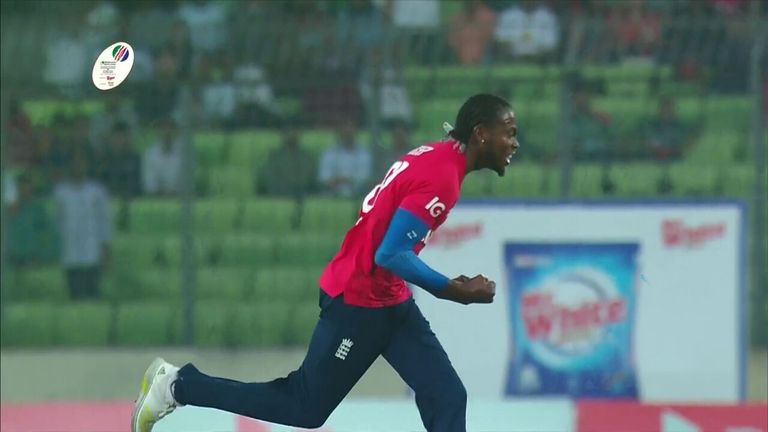[ad_1]
England’s exhausting but exhilarating winter wrapped with a rather humiliating 3-0 series defeat to Bangladesh in their T20 series, but what did we learn from their white-ball tour as a whole?
Jos Buttler’s side opened strongly, securing back-to-back wins in claiming a 2-1 ODI series win before a depleted T20 squad was swept aside in the shorter format.
With no further white-ball cricket until August, how are the holders of both World Cups shaping up ahead of their 50-over title defence in India come October?
We assess some of the positives as well as the concerns to come out of Bangladesh…
Sort out squad selection
The most contentious issue from the 3-0 T20I series defeat to end the tour of Bangladesh has been the balance of England’s side, with the tourist lacking in batting depth for the three T20 internationals.
Jason Roy, Alex Hales, Sam Billings and Liam Dawson were all given special dispensation to prioritise the ongoing Pakistan Super League, albeit Roy played and impressed in the ODI leg of the tour.
Already shorn of those options for the T20s, England’s plight was not helped by the further withdrawal of Will Jacks with a thigh complaint, himself a late addition to the tour after Tom Abell pulled out before the first ODI due to injury.
Instead of calling up a replacement, England went in to the T20 series light in the batting department, instead choosing to give their lower-order all-rounders – Sam Curran, Moeen Ali and 18-year-old debutant Rehan Ahmed – some greater exposure to the sort of tricky conditions that will be similar to those presented in India come the 50-over World Cup in October.
“My only concern or not having the right balance of your team out there is, it’s almost like saying ‘we’re looking towards the World Cup in the future,'” Sky Sports’ Nasser Hussain said after England’s 3-0 series defeat was confirmed with a 16-run loss in Tuesday’s final T20I.
“Try also to keep one eye on this game, otherwise you send that message that this game is not as important as one in eight months’ time.
“I see what they’re trying to do, but the short-term view and the long-term view, you’ve always got to balance that as a selector. These are not stupid people, Matthew Mott, Jos Buttler, Rob Key – they know what they’re doing.
“But I just think not having the extra batter sends the wrong message. You’ve got the three lions on your shirt; you’re playing for England and Bangladesh deserve a bit of respect.
“Pay attention to this game in front of you, and if you do that then the future will look after itself.”
Who will open the batting?
Batting options may not have been plentiful on the T20 leg of England’s tour of Bangladesh, but they will certainly be spoilt for choice come the World Cup in October.
There’s Joe Root to slot back in at number three, Buttler will likely be positioned at four and, let’s imagine for now that Ben Stokes does not come out of ODI retirement (more on that shortly), then Liam Livingstone and Harry Brook should take up residence in the middle order.
Where spots are less certain is at the very top of the order.
One openers’ berth is undoubtedly being set aside for Jonny Bairstow, arguably England’s best ODI batter, though we do not yet have a date for his return from a broken leg suffered in a freak golfing accident back in September.
Bairstow revealed last month that the injuring was “improving” and “we’re on the right track”, so assuming his successful return to the setup, it likely leaves one place up for grabs as his partner at the top of the order, along with a reserve batting spot in the 15-man squad.
Of the competing contingent, Jason Roy and Dawid Malan appear the most likely candidates to claim those spaces and subsequently battle it out for the remaining starting spot opening the batting.
Roy was an integral part of England’s 2019 World Cup win, but an extended lean patch with the bat in the two years following that triumph – averaging 27.81 across 26 matches, with just one hundred (vs Netherlands in June 2022) – saw him dropped from the side in 2022. There have, however, been green shoots of recovery evident on these new-year tours of South Africa and Bangladesh, with Roy notching important hundreds in both.
Malan, meanwhile, continues to impress in the white-ball format for England. He followed up a hundred and a half century when opening on the trip to South Africa with a further ton (batting at three) in the first ODI in Bangladesh, as well as a fifty in the final T20I of the tour.
In terms of alternative candidates, Phil Salt sadly failed to really capitalise on the opportunity presented to him, passing fifty only once in his ODI or T20I opportunities since – an unbeaten 88 against Pakistan back in September – and though Alex Hales seized his chance in last year’s T20 World Cup with both hands, will a first ODI in over four years follow this summer? Perhaps unlikely.
Positives for pacey Archer
The positives from Jofra Archer’s continued re-integration into the international fold are far more wide-reaching than just his impact on England’s white-ball fortunes.
Though Archer himself has suggested that he is appearing in just one Ashes Test this summer – with injury having prevented him adding to his 13-cap Test career for over two years – England will no doubt be eyeing greater involvement for their premier quick.
Archer terrorised the Aussies on their last tour in 2019, taking 22 wickets at an average of 20.27 apiece, with one of the most intimidatingly-fast spells of bowling in the game’s history included within as he literally bounced out Steve Smith at Lord’s, ruling him out of the third Test of the series with concussion after delivering a blow to his helmet.
The 27-year-old is just a couple of months into a comeback from well-documented elbow and back problems that kept him out of the international fray for 22 months, and England white-ball head coach Mott has pleaded for patience as he is eased back in.
But there were signs in Bangladesh, building on an encouraging return in South Africa earlier in the year, that Archer is on the pathway back to his pacey best.
His dismissal of Afif Hossain to a devastating 92mph yorker, on his way to exceptional figures of 3-13 in the second T20I, was undoubtedly our greatest glimpse yet of peak Archer, and his tally of four wickets across the series would have been far greater but for some poor drops and sloppy fielding in the third T20I in particular.
But arguably the greatest aspect of this tour was the fact that Archer played in all three T20s, passing the toughest examination of his new-found fitness by playing in back-to-back games for the first time since his return.
Archer also combined for five wickets in his two ODI appearances to book-end that series, with his death bowling particularly standing out. In fact, since returning from injury in January Archer’s numbers in the final 10 overs of an innings are remarkable – eight wickets at an average of 4.75 and going at a measly economy of 4.75 an over too.
The man who delivered that Super Over in England’s 2019 World Cup triumph will hopefully be in a position to step up on the biggest stage again later this year.
Curran continues to be key performer
Curran’s promotion up the order did not really pay dividends in Bangladesh, as he managed just 23 off 49 when batting at five in England’s third ODI defeat and reached double figures (12) just once in his three efforts at six in the T20s.
Moeen too contributed only 32 runs across his three opportunities batting in the top five in the T20 series.
But both are still vital members of England’s World Cup playing XI, let alone their squad, surely nailing down the spots at seven and eight in the order and it’s with the ball where both more than showed their worth in Bangladesh – particularly Curran.
The Player of the Tournament from England’s T20 World Cup win last year, Curran was incisive with the new ball in both of the ODIs he played in, striking twice in his opening over and three times in his first two on his way to dazzling figures of 4-29 in the second game of the series.
In the third, his two wickets in his opening two overs – seeing the back of the Bangladesh openers – ended up appearing almost par for the course for him in the 50-over format.
In the T20 series, Curran then showed his unrivalled versatility by playing a greater role at the back-end of the innings, stingily shoring up one end by mixing up his speeds and variations superbly.
With England sans Stokes (for now) in ODI cricket, they could do with a repeat of Curran’s tournament-leading heroics when out in India later this year.
Will Stokes return to ODI side?
We are a long way yet from knowing Stokes’ intentions with regards to his ODI future, the 31-year-old star all-rounder having retired from the 50-over format last summer.
Stokes understandably stepped aside as he grappled with added demands of the Test captaincy and the relentlessness of an increasingly jam-packed schedule.
Not much has changed on that front in the past eight months since he made the decision, but you wpuld imagine the lure of defending the World Cup crown he was so influential in securing will prove too tempting a proposition to resist – especially if it follows a successful Ashes summer.
Not only that, but Stokes proved just as pivotal to England’s 2022 T20 World Cup success back in November, using all of his experience and canny cricketing instincts to calmly see them over the line in the final against Pakistan with a patient, unbeaten 52 from 49 balls.
Hussain said back in February: “I think just after England win the Ashes this summer, I’d be ringing Ben up and saying ‘do you fancy making it a World T20 win, an Ashes win and a World Cup win in the space of a year?’
“When he’s absolutely at his highest, loving life and loving the game, it’s a case of, ‘Ben, do you want to take it one-step further?’.
“We joke but I think deep down he knows he’s got that trump card if he needs it.”
[ad_2]
Source link
